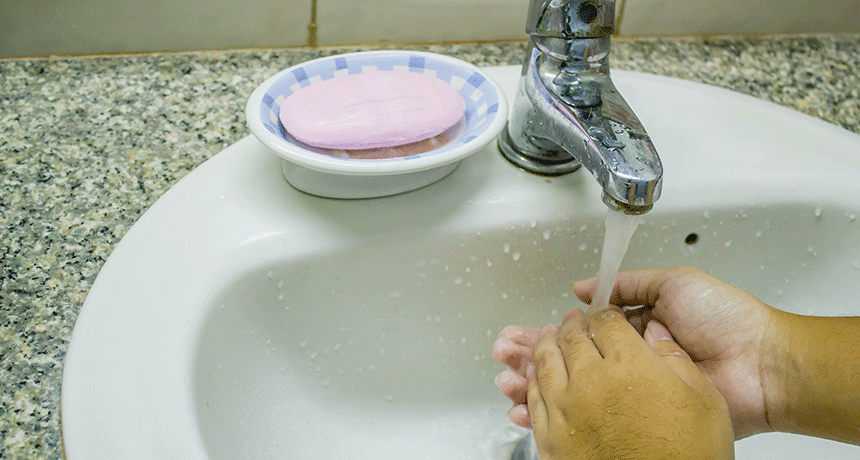antibiotic A germ-killing substance, usually prescribed as a medicine (or sometimes as a feed additive to promote the growth of livestock). It does not work against viruses.
bacteria (singular: bacterium) Single-celled organisms. These dwell nearly everywhere on Earth, from the bottom of the sea to inside other living organisms (such as plants and animals).
chemical A substance formed from two or more atoms that unite (bond) in a fixed proportion and structure. For example, water is a chemical made when two hydrogen atoms bond to one oxygen atom. Its chemical formula is H2O. Chemical also can be an adjective to describe properties of materials that are the result of various reactions between different compounds.
Food and Drug Administration (or FDA) A part of the U.S. Department of Health and Human Services, FDA is charged with overseeing the safety of many products. For instance, it is responsible for making sure drugs are properly labeled, safe and effective; that cosmetics and food supplements are safe and properly labeled; and that tobacco products are regulated.
germ Any one-celled microorganism, such as a bacterium or fungal species, or a virus particle. Some germs cause disease. Others can promote the health of more complex organisms, including birds and mammals. The health effects of most germs, however, remain unknown.
triclosan A germ-killing chemical added to some common products such as hand soaps and sponges.

